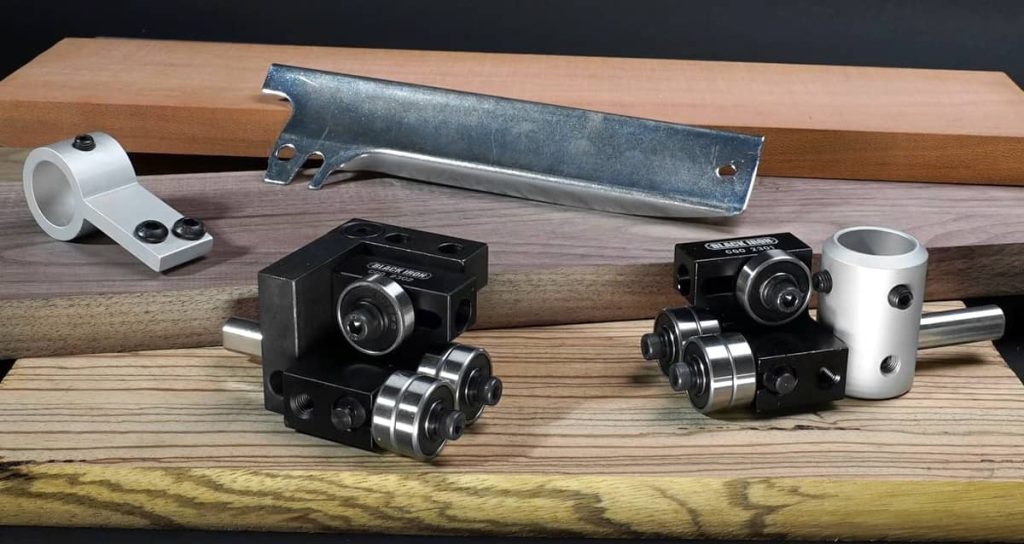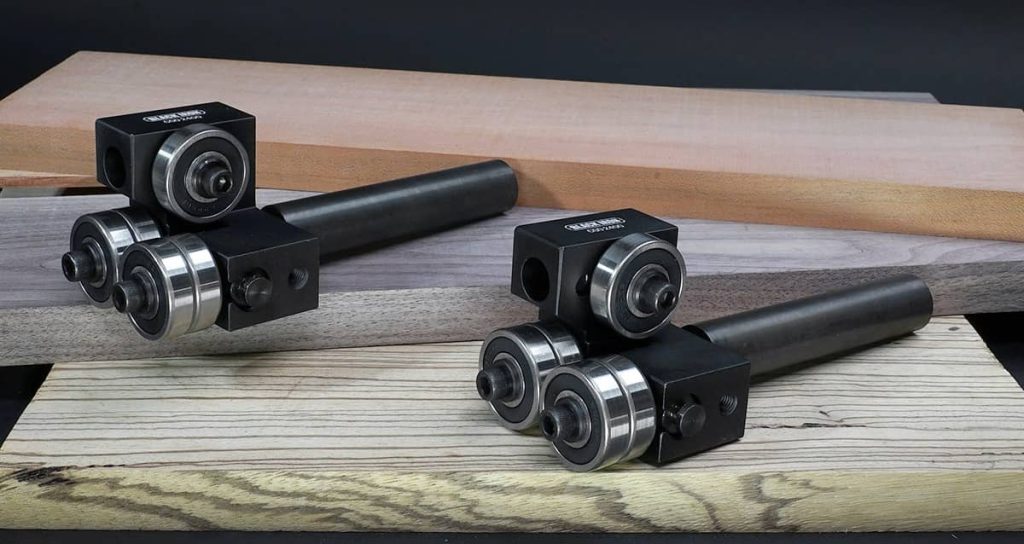Why Adjustment Is Essential
Guide bearings are vital for consistent results when using a bandsaw. They stabilize the blade, minimize vibration, and protect it from unnecessary wear. If they’re misaligned, your blade may wander, dull quickly, or cause rough cuts.
Types of Bandsaw Guides Explained
-
Side Guides or Blocks: Limit side movement of the blade
-
Thrust Bearings: Keep the blade from moving backward during use
-
Upper and Lower Assemblies: Found above and below the table, both must be tuned properly

Preparing Your Saw for Adjustment
Disconnect power before making changes to avoid accidents. It’s also important to confirm the blade is properly tensioned and free of debris before you start.
Tools You’ll Need
For smooth adjustments, have these items on hand: protective gloves, a bright light, hex wrenches, screwdrivers, and a feeler gauge for precision spacing.
Step-by-Step Adjustment Process
| Step | Action | Notes |
|---|---|---|
| 1 | Disconnect power | Prevents accidental startup |
| 2 | Check the blade | Inspect for cracks, dull edges, or poor tension |
| 3 | Verify blade tracking | Blade should ride on the wheel’s crown |
| 4 | Set upper side guides | Leave clearance equal to a business card’s thickness |
| 5 | Position the upper thrust bearing | Keep it 1/64″ behind the blade |
| 6 | Adjust lower guides | Duplicate adjustments under the table |
| 7 | Review alignment | Spin wheel manually to confirm spacing |
| 8 | Perform a test cut | Use scrap wood to evaluate results |
Tips for Safe and Accurate Cuts
Guides should never pinch the blade. They are meant to support, not restrict movement. Cleaning resin and dust regularly also helps maintain smooth operation.
Common Issues and Quick Fixes
-
Blade shifts sideways → Reset side guides
-
Burn marks on cuts → Adjust thrust bearing and clean guides
-
Vibration during use → Inspect bearings and tighten mounts
-
Blade dulls too fast → Reduce guide pressure and recheck clearances

Why Correct Adjustment Pays Off
Precise adjustments lead to straighter cuts, longer blade life, and less strain on the motor. These small changes can make a big difference in performance.
Extra Tips for Best Results
-
Use a feeler gauge for delicate work
-
Upgrade to ceramic blocks for smoother performance
-
Inspect guides often to catch wear early
Learn More About the Pro Tech 3203
If you’re interested in compact, reliable bandsaws that are ideal for small shops and hobbyists, you’ll want to read our article “Pro Tech 3203: What Makes This Bandsaw So Popular.” It breaks down the features, advantages, and real-world uses that make the 3203 a favorite choice for woodworkers.
Upgrade Possibilities
Many users replace standard guide assemblies with sealed ball-bearing versions. These provide better blade stability, smoother operation, and reduced friction.
Adjusting your bandsaw’s guide bearings doesn’t require much time but delivers lasting benefits. With a few simple tools and the right process, you’ll keep your saw cutting cleanly, efficiently, and reliably.